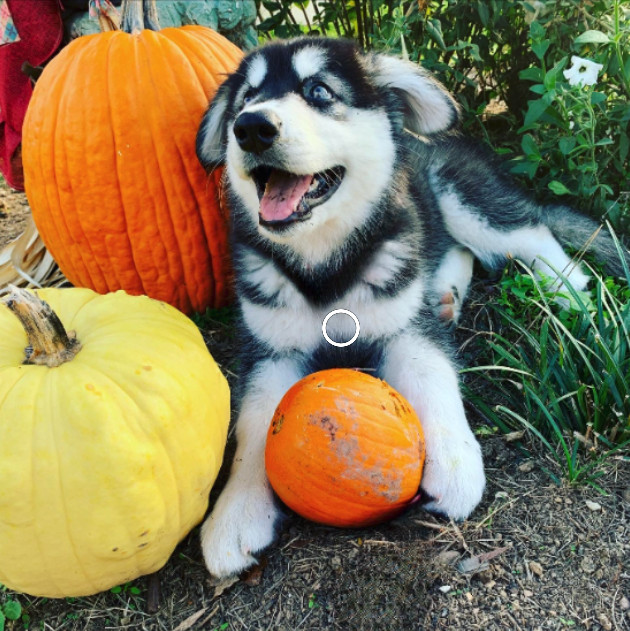
Thanksgiving is a time to be thankful, eat yummy food, and spend time with the people and pets we love. But not all the food on your plate is safe for your dog.
Let’s talk about what foods are okay for dogs and what foods should stay far away from their bowl.
Foods That Are a Big No in Our House
Even though Waffles gives me that sweet look, there are some things I never let him have. These can be dangerous, even if it’s just a little bite.
- Turkey bones can break and hurt their throat or belly. Waffles doesn’t get any bones.
- Stuffing made with onions or garlic is not safe for dogs.
- Chocolate or sweet treats with fake sugar like xylitol can make dogs very sick.
- Grapes or raisins, sometimes in salads or desserts, can hurt their kidneys.
- Creamy foods, casseroles, and buttery dishes upset tummies and can be too rich.
- Alcohol is very harmful to dogs, even in small amounts.
What Waffles Is Allowed to Enjoy
Now for the good news. Some Thanksgiving foods are safe for dogs, but only if they are served plain and in small bites. Here’s what I let Waffles enjoy:
- Plain turkey breast with no bones or skin. He only gets a few small bites.
- Steamed green beans with no salt. Crunchy and healthy.
- Mashed sweet potatoes with nothing added. No butter or sugar.
- A little plain canned pumpkin. It helps with digestion and Waffles loves it.
- Apple slices with no seeds. A sweet, crunchy treat.
I always make Waffles his own little Thanksgiving plate with safe foods just for him. It helps him feel like he’s part of the family because he is.
From Our Table to Yours
It feels good to share the holiday with your dog. Just remember, not all people food is dog food. A little care can keep your pup safe and happy all season long.
Want more tips like this? Join our Facebook group where we raise our rescue pups with love, structure, and grace — just like family. Click HERE: https://www.facebook.com/groups/1223583448501457

Have you ever stood in the pet food aisle at the store, scratching your head, wondering which food is the best pick for your furry friend? You're not alone! With so many options, it's like trying to choose the best ice cream flavor. But worry not, because today we're diving into the world of dog food to discover the four main types that will make your pup's tail wag with joy.
1. Kibble Crunch
First up is the most common type you've probably seen everywhere - dry dog food, also known as kibble. Imagine having cereal for breakfast; that's what kibble is like for dogs. It's convenient, lasts a long time without spoiling, and comes in bags that are easy to store. Plus, munching on those crunchy bits is good for your dog's teeth. Just make sure you pick a kibble that's full of nutrients and not just filler stuff like corn or wheat. Reading a dog food label is more complex then a human food label for sure!
2. Wet Food Wonderland
Next, we splash into the world of wet dog food. This type comes in cans or pouches and has a lot of moisture, which is great for keeping your dog hydrated. Water is the most important nutrient in your dogs's bowl. (this was the first tidbit I learned in my studies to become a certified canine nutritionist) Imagine having a soup or stew; that's the vibe of wet food. It's especially yummy for picky eaters or older dogs who might have trouble chewing. The smell and taste can be a big hit, but remember, once opened, it needs to be eaten quickly or stored in the fridge.
3. Raw Food Rave
Have you ever seen a wolf chowing down on berries or grains in the wild? Nope! That's because they love their meals straight from nature. This is the idea behind raw dog food. It's made of raw meats, bones, fruits, and veggies. Some pet parents swear by it, saying it's super healthy and natural for dogs. However, many people are nervous or unsure about raw feeding because they are either grossed out or just don't know enough about it.
4. Homemade Happiness
Lastly, there's homemade dog food, which is like cooking a special dinner for your dog. You can use fresh meats, veggies, and grains to whip up something delicious and nutritious. It's a great way to know exactly what's going into your dog's belly. But remember, dogs need a balanced diet just like us, so you will want to make sure to use a balanced recipe or chat with a nutritionist to be sure your pup is getting everything it needs to be healthy.
Whether it's crunchy kibble, delicious wet food, natural raw meals, or lovingly homemade dishes, there's a perfect type of dog food for every furry friend out there. The best choice depends on your dog's age, health, preference, and of course your budget. I encourage every pup owner to focus on providing the best nutrition their budget allows. This can even include healthy treats to supplement their diet.
What questions do you have about feeding your dog a healthy diet?
This topic has become a passion of mine and the motivation behind my decision to go back to school to become a canine nutritionist!
I invite you to join my free group:
My free Facebook group for busy dog moms who want to confidently nourish their pups without second-guessing every bite. Inside, you’ll find simple nutrition tips, label-reading help, feeding strategies, and real support to raise a dog you truly love living with—starting at mealtime and lasting a lifetime.
💛Because every pup deserves a full bowl and a full heart.

1. DIGESTIVE HEALTH BOOST
Pumpkin is a fiber-rich food, and adding it to your dog's diet can aid in maintaining a healthy digestive system. The soluble fibers help regulate bowel movements, alleviating both constipation and diarrhea. For dogs with sensitive stomachs, pumpkin can be a natural and gentle solution. I will either whip up a batch of pumpkin treats or mix some into his food at the first sign of an upset tummy.
2. Weight Management:
If your dog is on a weight management plan, pumpkin can be a valuable ally. Its high fiber content helps create a feeling of fullness, potentially reducing overall food intake. It's a low-calorie option that adds bulk to your dog's meals, making it a great addition for those looking to shed a few pounds.
3. Nutrient-Rich Goodness:
Pumpkin is rich in essential nutrients like vitamins A, C, and E, as well as potassium. These nutrients contribute to your dog's overall health, supporting immune function, promoting healthy skin, and maintaining proper electrolyte balance. The natural goodness of pumpkin can be a tasty and nutritious addition to your dog's daily meals.
4. Moisture Content:
For dogs who may not be getting enough water through their regular drinking habits, pumpkin can contribute to their daily hydration needs. The water content in pumpkin can be especially beneficial for dogs on dry kibble diets, ensuring they stay adequately hydrated.
5. Dental Health:
Chewing on pumpkin can be a great way for your dog to naturally clean their teeth. The fibrous texture acts as a gentle abrasive, promoting better dental health by helping to reduce plaque and tartar buildup.
How to Incorporate Pumpkin:
- Introduce pumpkin gradually into your dog's diet to avoid digestive upset.
- Opt for plain, canned pumpkin without added sugars or spices.
- The recommended serving size varies based on your dog's size; consult with your veterinarian for personalized advice.
- I love may my pup homemade pumpkin treats!
Pumpkin Safety Tips:
- Always choose plain, canned pumpkin without additives.
- Moderation is key; too much pumpkin can lead to digestive upset.
- Consult your veterinarian before making any significant dietary changes.
PUMPKIN Purchase TIPS:
- You don't need to purchase pumpkin marketed for pet consumption (it is more expensive)
- As long as the only ingredient is pumpkin any canned pumpkin will do
- If you can't find it at your local store, this canned pumpkin is the most affordable per ounce one I have found online c
To ease food transitions and prevent upset stomachs, I regularly add pumpkin to my Waffle's bowl. (yes my dogs name is Waffles- LOL) This PROACTIVE approach (I always prefer being proactive when possible) not only ensures a smooth transition but also adds a flavorful twist to his meals. Adding pumpkin to your dog's diet can be a simple yet powerful way to enhance their overall well-being. As with any dietary changes, it's essential to monitor your dog's reaction and consult with your veterinarian for personalized advice. Embrace the natural goodness of pumpkin and let your dog enjoy the benefits of this humble superfood! 🐾🎃
Do you desire to responsibly raise happy, healthy, and well-behaved dogs that effortlessly blend into your family, becoming more than JUST pets -even if you lead a busy life?!?
If the answer is yes, then I invite you to join my free group:
My free Facebook group for busy dog moms who want to confidently nourish their pups without second-guessing every bite. Inside, you’ll find simple nutrition tips, label-reading help, feeding strategies, and real support to raise a dog you truly love living with—starting at mealtime and lasting a lifetime.
💛Because every pup deserves a full bowl and a full heart.




